You caught a ride with your best friend after school, but she pulls out her phone halfway down the road. You are shocked that she is being so irresponsible, but you usually avoid conflict. What do you do?
Your rideshare driver is weaving through traffic, tailing other cars, and speeding. You don’t know him but you don’t feel safe. What do you do?
Your cousin picks you up from work, but you notice he’s not wearing a seat belt. You don’t want to seem ungrateful for the ride, but you want him to buckle up. What do you do?
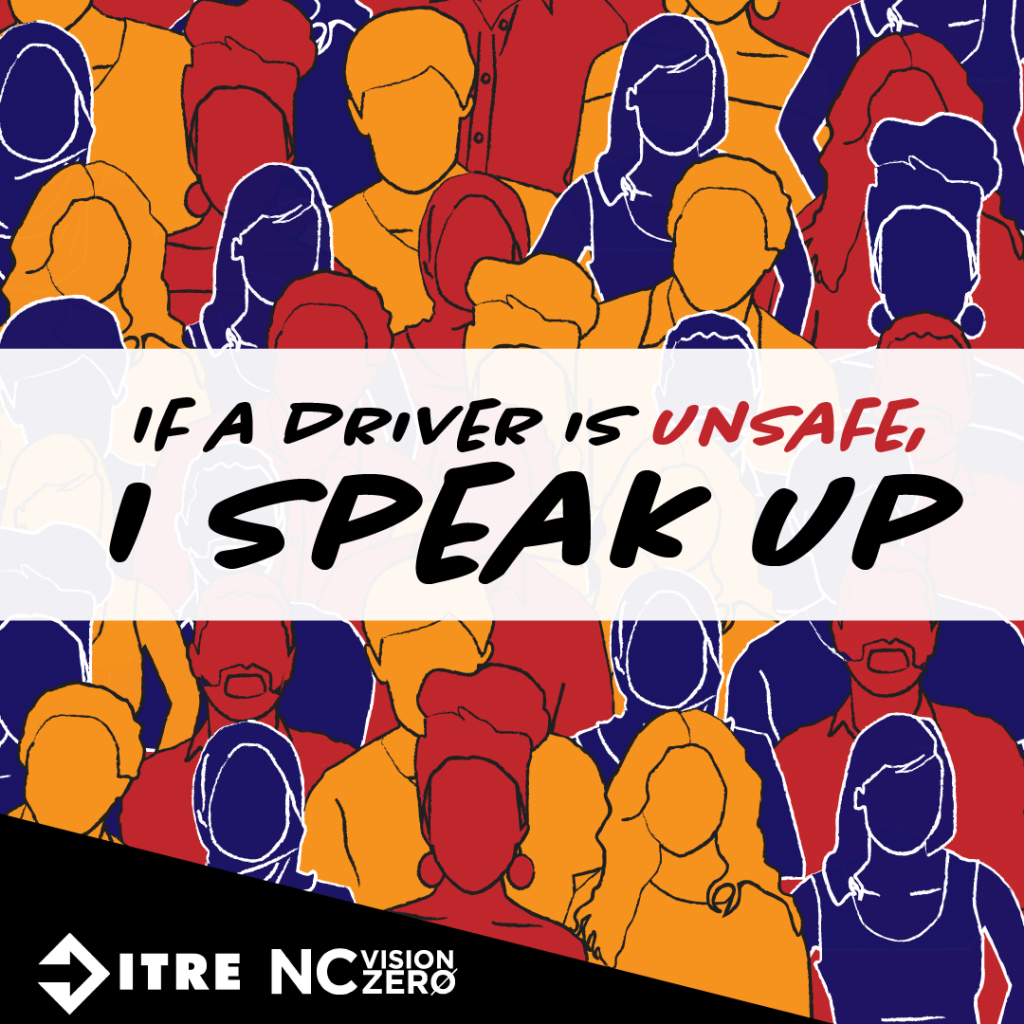
When you’re riding in a vehicle, your life is in the driver’s hands.
In 2021, 273 passengers were killed on North Carolina roads (Source: NCDOT Crash Facts).
So, what do you do if you’re riding with someone and the driver is doing something dangerous? What can you say if you don’t feel safe? It can be difficult, and sometimes awkward, to confront other people about their driving, but it can potentially prevent a crash and/or save lives.
You have the right and the responsibility to speak up if someone is driving dangerously. This makes you an empowered passenger! Just remember to be a PEACH.
The PEACH acronym can help you remember things to say if a driver is being unsafe.
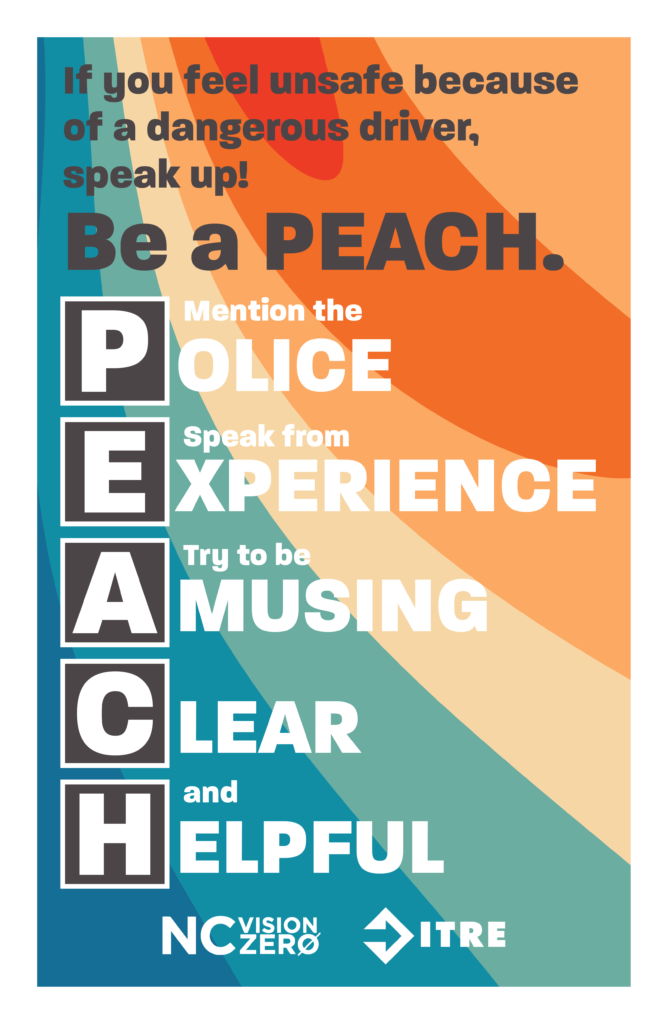
One easy way to encourage a driver to change their behavior is to remind them of the threat of a traffic ticket. For example:
I’ve seen a lot of cops out today, you might want to slow down.
My cousin got a ticket for not wearing a seat belt last week – I think they’re cracking down on that around here.
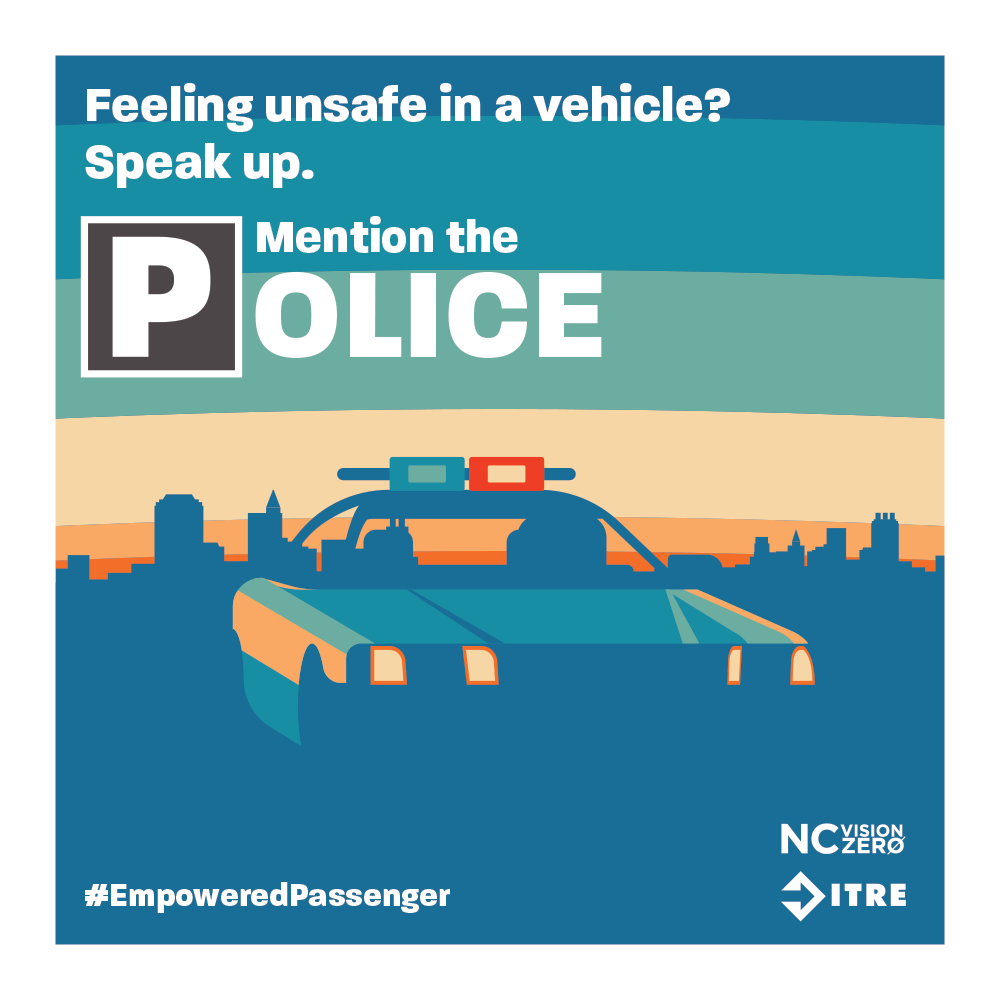
Sharing a story or a personal experience may also help to persuade a driver to be safe.
For example:
My friend got hit by someone driving distracted last week. It really freaked me out.
I read a story this morning about a family killed by a speeding driver. It was heartbreaking.
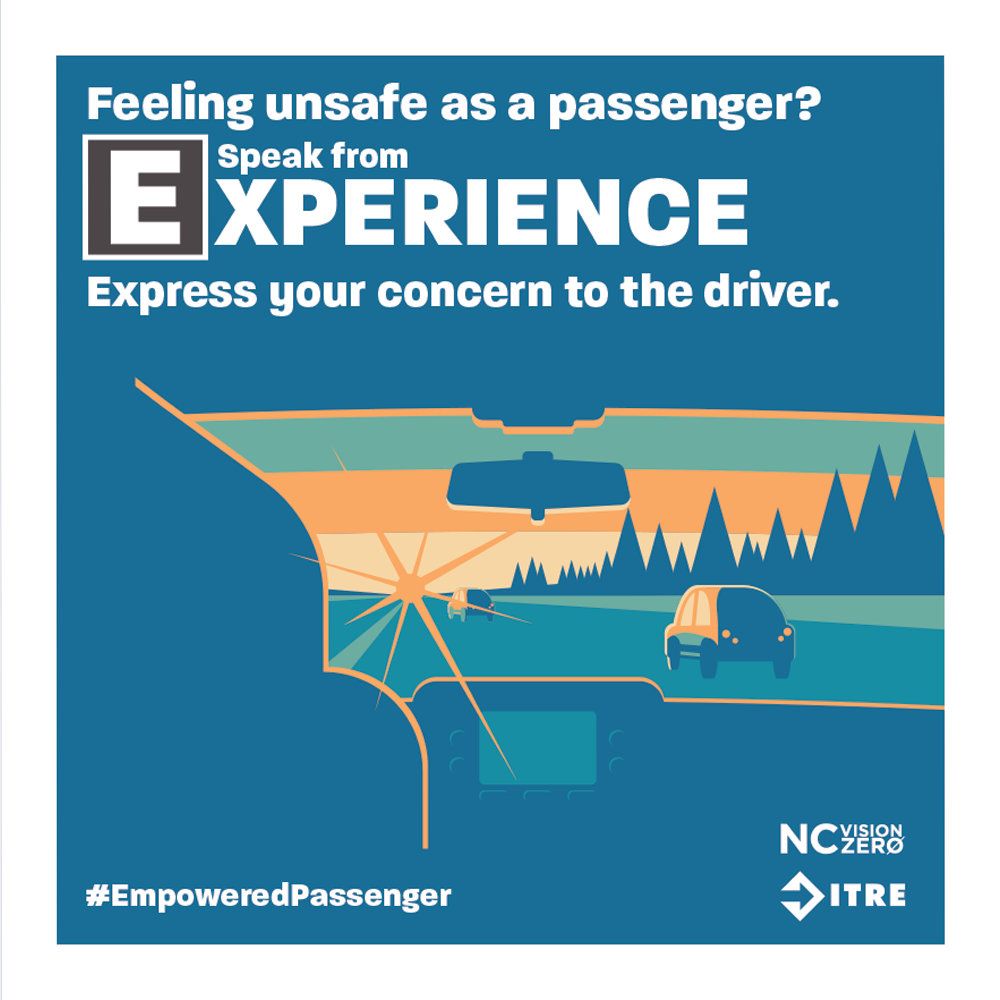
If you can think of joke, humor can also be used to call attention to something that isn’t safe.
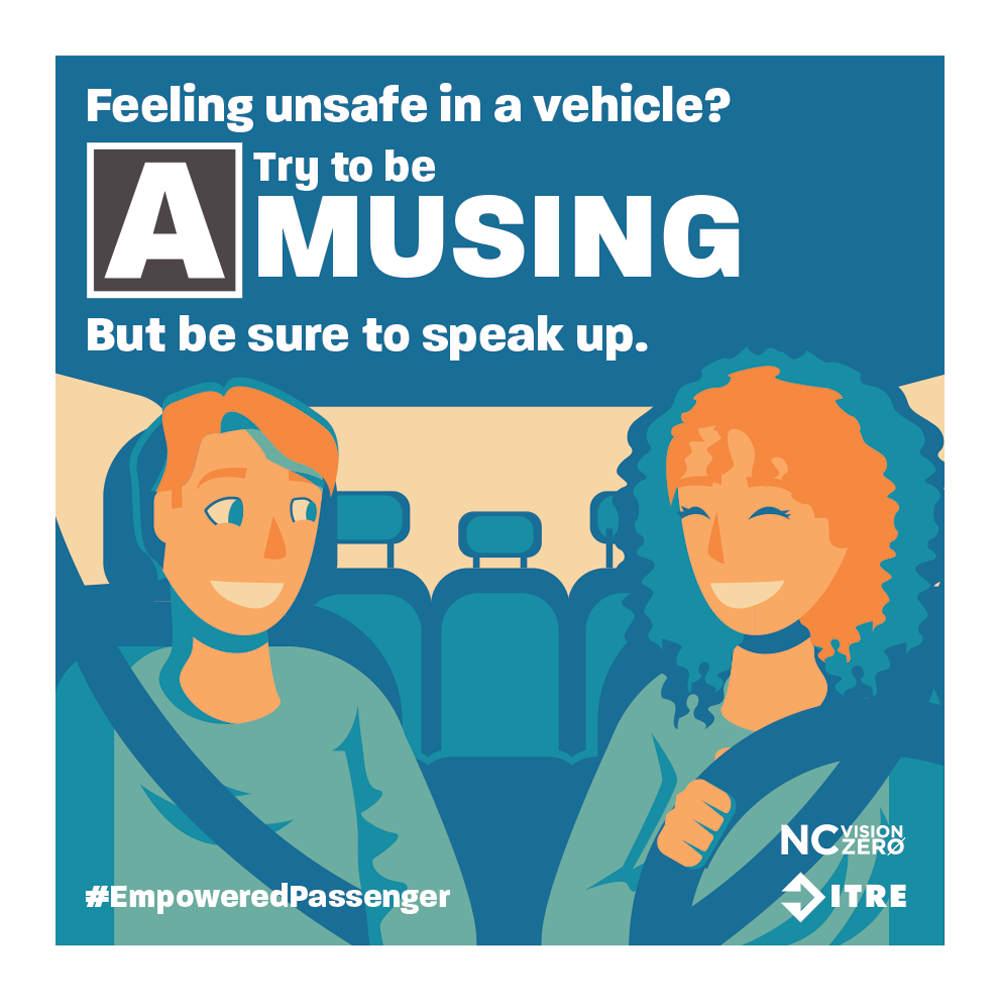
Sometimes being direct is the best option. If you feel safe to confront the driver directly, tell them what is making you nervous and ask them to stop.
For example:
Hey, you’re driving really close to that other car’s bumper. It’s making me nervous. Can you please ease up?
Please don’t use your phone while you’re driving – I don’t feel safe.
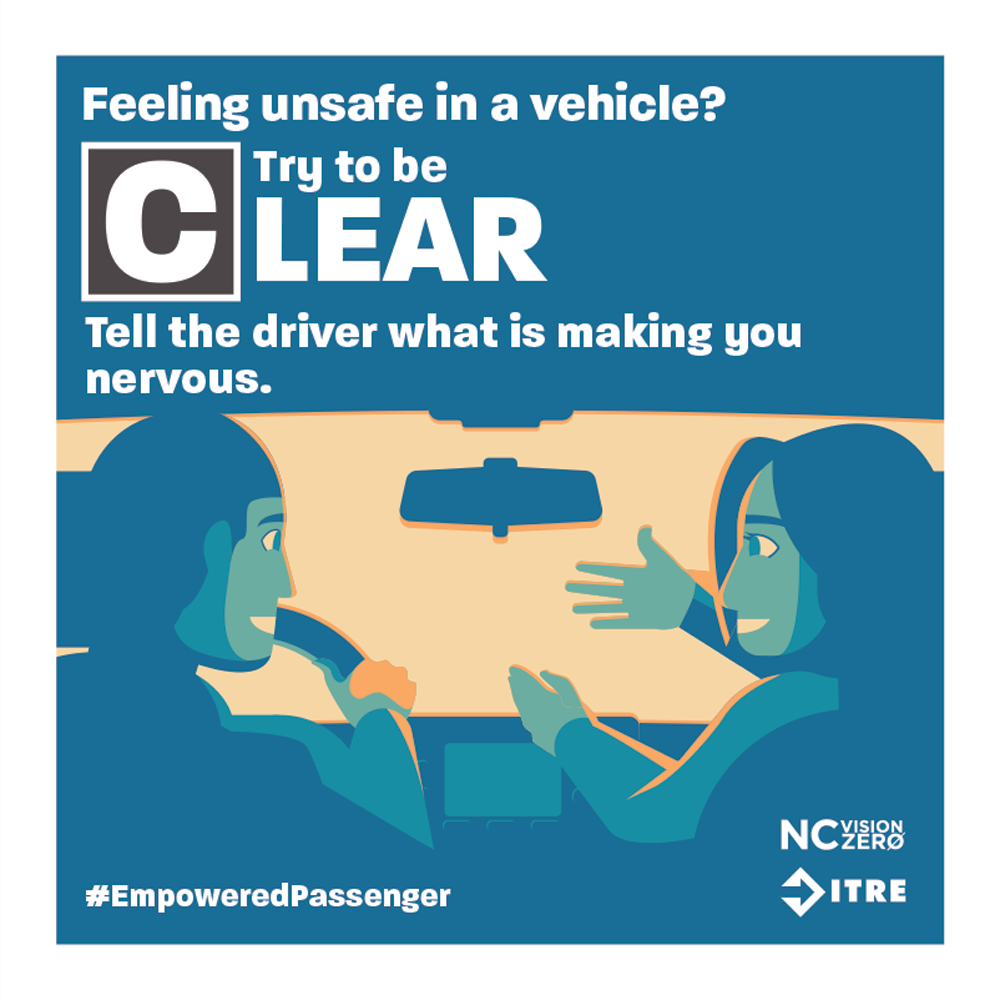
In some cases, it may be easier to offer to help rather than confronting someone directly.
For example:
Here, let me type that for you so you can keep your eyes on the road.
Want me to call them and tell them we’re late so you don’t have to speed?
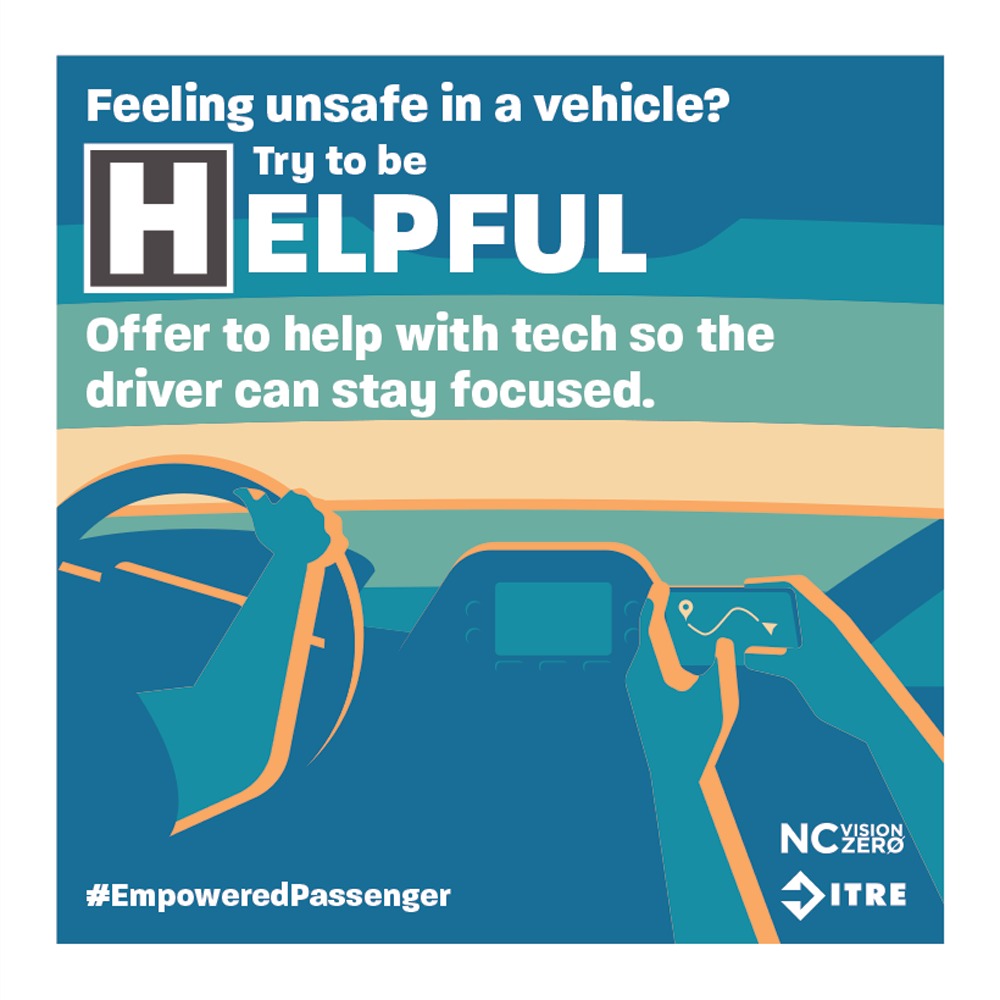
Lastly, if you have tried speaking to a driver and they continue to make dangerous choices, your safest option is to get out of the car (in a safe location) or refuse to ride with them again in the future.